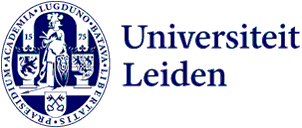Niels Laurens: ‘We’re no longer a small faculty’
Since a few months, Executive Director Niels Laurens no longer has to divide his attention between two faculties but has been able to fully focus on FGGA. A conversation about the dynamics within our Faculty, his management style, and the steps we will all have to take together to improve issues such as work-related pressure, dignity and respect, and diversity and inclusivity. Plus a plea to all of us to come to Wijnhaven to meet up with each other after the summer. ‘The buildings are simply too empty right now.’

Niels Laurens has been working at FGGA for 18 months now. He started out combining this position with that of director at the Faculty of Archaeology but, since this spring, he has fully transferred to FGGA. Niels: ‘I feel very much at home and have the feeling I truly fit in here. There’s a positive dynamic and I can feel the energy of a faculty in the centre of the administrative heart of our country. Since I’ve started working fulltime for FGGA, I’ve simply had more time to do what needs to be done. The upcoming period, for instance, we’ll be taking a closer look at the new strategy of Leiden University and what it means for us. What do we want to focus on and, equally important perhaps, what will we no longer be doing. By organising strategic sessions with the institutes and the Faculty Board, we hope to come up with a plan.’
Creating a connection
As administrator, Niels likes to give people room to operate. ‘I enjoy working with self-managing professionals. I have plenty of experience, but what do I really know about HRM or Communications? It’s my job to get the best out of people, provide the framework, and come up with a collective approach.’ He emphasises that the main objective of the University is to provide education and research and that operational management should be geared towards facilitating this. ‘I’m trying to create a connection between the experts and the people on the work floor.’
Apart from working closely with FGGA employees, the executive director must also confer with the University on a regular basis. Niels: ‘There can be some friction every now and then, but that doesn’t have to be a problem as long as we’re able to explain why we do things in a different way.’ He mentions Siggy as an example: our new coaching system for students that will be launched in September. ‘We really wanted to have this but the other faculties in The Hague thought differently. We decided to do it on our own because we truly believe that this is important for our students.’
It’s very important that everyone feels comfortable and safe with us.
Focus on important topics
Respect and dignity, work-related pressure, and diversity and inclusivity have become important topics within FGGA of late. According to Niels, these topics should not be seen as separate items. ‘It’s all interconnected. I plan to address these topics as a whole. Management also has an important role to play. We need to be more clear, for instance, about the possibilities and career development. Not everyone can become a department head or a professor. It’s really important to be clear and transparent about these things. It became apparent from the (D&I) questionnaire we send out a while back that colleagues are worried about employment perspectives and the meaning of the annual meeting. We really should take action in the upcoming period. It’s very important that everyone feels comfortable and safe with us.’
Because diversity and inclusivity are such an important topic, FGGA will also be looking at how to address this issue in a different way. Where, over the last few years, this has been the domain of a Diversity Officer who was working at FGGA for two days a week, the plan is now to put HRM in charge of the issue. Niels: ‘We’re looking to create funding for someone to be available for four days to deal with this.’
The buildings are simply too empty
Since the beginning of this spring, employees have been invited to return to the office. The Faculty has been busy making sure that all the necessary facilities were available. Laptops have been made available and efforts have been made to make sure that the WiFi connection inside the building is working properly. The facilities have been made available but it is up to the institutes themselves to organise their office spaces and to think about ways to entice their employees to return to the office more often. According to Niels, the building is simply too empty right now. ‘Working from home definitely has its advantages, but it’s essential to meet up physically if you want a productive collaboration. The power of hybrid working lies in the combining of both: the type of activities determines the location. This is something we’ll really need to work on and improve after the summer.’
Proud of FGGA
At this moment, the budget is being finalised. Niels explains that the prognosis is looking good. ‘Things are going really well; we’re no longer a small faculty. We’ve experienced an enormous growth and in order to deal with that in a responsible manner, we’re now looking to hire more colleagues.’ On top of that, Minister Dijkgraaf, of the Ministry of Education, Culture, and Science, has recently announced that he is planning to provide an enormous boost to higher education in the Netherlands. Niels: ‘The Faculty’s future is looking good. That’s something we can be really proud of. I’m looking forward to experiencing many more positive highlights here in The Hague.’
Text: Judith van Doorn and Margriet van der Zee
